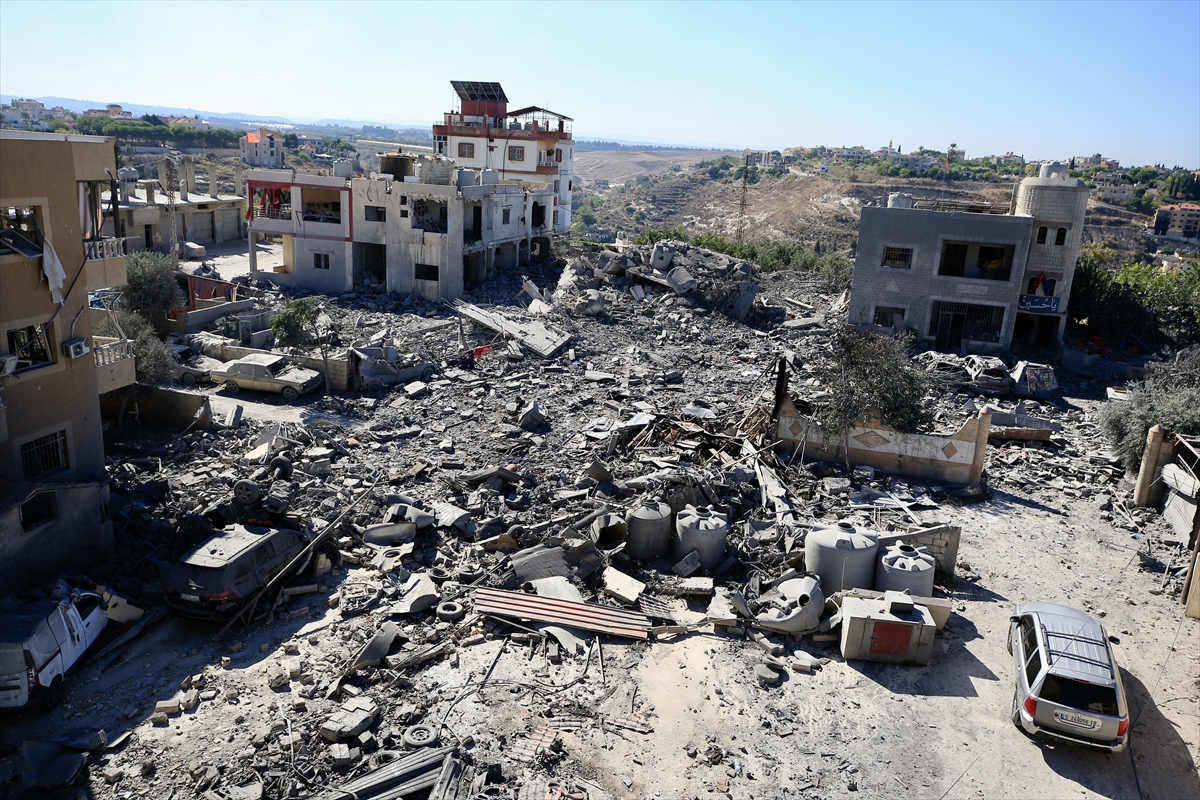
By Nadine Osman
London (The Muslim News): The killings in the Gaza Strip and Lebanon have escalated to catastrophic levels, with Israeli airstrikes causing extensive destruction and significant civilian casualties. On Wednesday alone, medical sources reported at least 36 Palestinians were killed in fresh strikes in Gaza. The conflict has devastated the region, disproportionately affecting civilians, especially women and children. Number of Palestinians killed since 7 October has increased to 41,534 and 96,092 others wounded By Israeli indiscriminate bombings in Gaza Strip.
In one of the deadliest attacks, an Israeli fighter jet targeted a home in the Bureij refugee camp in central Gaza, killing three women and two children. This incident deepened the grief of an already traumatized community. As emergency services rushed to respond, another airstrike by a drone claimed the lives of two more individuals in Khirbat al-Adas, north of Rafah, again highlighting the focus on civilian targets. In a particularly heartbreaking development, a young girl with disabilities in Rafah succumbed to injuries she had sustained during an earlier Israeli strike on her family’s home, underscoring the disproportionate impact of the conflict on Gaza’s most vulnerable populations.
The situation in the Nuseirat refugee camp has further deteriorated, with five bodies recovered from the rubble following two Israeli airstrikes. Al-Awda Hospital confirmed these fatalities as medical personnel continued to operate under immense pressure due to the increasing number of casualties. Nuseirat has emerged as a critical flashpoint in the ongoing bombings by Israeli Defence Forces, exacerbating the humanitarian crisis. In the Sabra neighbourhood, an additional strike resulted in the destruction of a family home, leading to three more fatalities, and leaving survivors in a state of shock.
Further contributing to the rising toll, a lone Palestinian was killed in Beit Lahia. Later in the evening, Mamdouh Basal, spokesperson for the Gaza Civil Defence, confirmed that four more Palestinians, including two women, were killed when Israeli warplanes struck the Abidin family home in Rafah. The chaos following this attack made it difficult for rescue workers to navigate the destruction and reach those trapped beneath the debris. In another strike, a house belonging to the Hazein family in the New Camp area of Nuseirat was targeted, leading to multiple injuries. As the extent of damage is still being assessed, the death toll continues to climb.
In parallel, the situation in Lebanon has deteriorated dramatically. Since 8 October, when Israel launched its offensive on the Gaza Strip following a cross-border attack by Hamas, the death toll from airstrikes has surged to 1,247, including many women and children, with around 5,278 injured, according to Lebanese officials. At a press conference, Lebanese Minister of Environment Nasser Yassin stated that the number of “martyrs continues to rise” as Israeli bombardments intensify, particularly in the south of the country.
In a striking illustration of the current crisis, the number of registered displaced persons in emergency shelters has reached approximately 150,000, accounting for about 30% of the total displaced population. Individuals fleeing violence are spread across regions from Wadi Khaled and Akkar in the north to the capital Beirut, Mount Lebanon, and the Bekaa Valley, including areas such as Zahle, Matn, Aley, and Chouf.
Lebanon’s Health Minister, Firas Abiad, noted that around 40,000 people have sought refuge in shelters amid the ongoing Israeli attacks.
Fresh Israeli airstrikes across various regions, including Baalbek-Hermel province and towns like Tebnine and Bint Jbeil in the south, resulted in at least 51 deaths and 223 injuries on Wednesday alone. In the southern town of Qana, three more people lost their lives, while airstrikes on Joun and Maaysrah added to the mounting casualties.
The Israeli army has claimed that it has struck over 280 Hezbollah-linked targets in Lebanon since the start of the recent airstrikes, and they have called up two reserve brigades to bolster forces along the northern border. The cross-border warfare with Hezbollah has further complicated an already volatile situation, with fears escalating that the conflict could spread regionally.
[Photo: Damage of residential buildings by Israeli attacks in Sidon, Lebanon on 26 09, 2024. Photojournalist: Stringer/ AA]